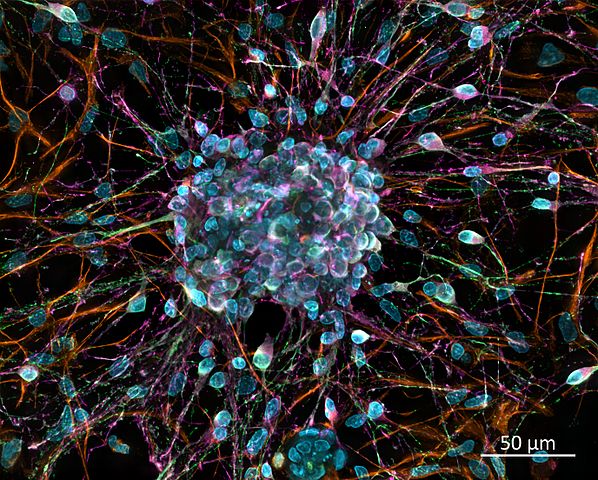Scientists Discover Neurons Linked To Stress, Insomnia, and the Immune System

Image of rat primary cortical neurons in culture
Cold Spring Harbor Laboratory and Stanford University scientists have recently identified the brain's circuit, which, according to them, the reason for people's sleepless nights when they are stressed.
It turns out too, the said researchers said, that particular circuit does more than make one "toss and turn." Their study links the same neuronal associations, triggering insomnia to stress-induced changes in the immune system, which weaken the defenses of the body against a host of dangers.
This particular research, according to Jeremy Borniger, assistant professor at CSHL, links and explains two familiar problems.
The professor added that this kind of stress-induced insomnia is quite common among any individual who has tried to sleep with an impending deadline or any significant activity the following day.
Borniger explained that it had been known for quite some time that patients who are chronically stressed usually do worse with different therapies and across multiple illnesses.
'Stress Hormone Cortisol'
Like most aspects of stress response in the body, these impacts seem to be driven by what scientists describe as "stress hormone cortisol."
It was working in the Stanford lab of Luis de Lecea, where Borniger also completed a postdoctoral fellowship before he joined CSHL, that a direct link between stress-sensitive neurons in the brain that activate the release of cortisol, as well as the nearby neurons that stimulate insomnia was discovered.
In mice, the team found that indicators from the cells that release hormones have a substantial impact "on the insomnia-inducing neurons."
The researchers also found that interfering with that link allowed mice to sleep peacefully, even the following exposure to a stressful situation. At the same time, artificial replication of the "stress-sensitive cells" immediately roused sleeping model animals.
In connection to this, Borniger said, it seemed like it was a pretty delicate shift, "In that, even very week prompt of the circuit" can initiate insomnia.
DON'T MISS THIS: 6 Reasons Why You're Gaining Weight Unintentionally
The Same Effect in the Immune System
The same link, the study author found, also has a substantial impact on the immune system. Stress considerably interrupts "the abundance of certain immune cells in the blood, as well as indicating pathways inside them."
Additionally, the team was also able to reconstruct the said changes by merely stimulating the same neurons that associate stress with insomnia.
Understanding this circuitry, Borniger said, "Opens the door to a deeper understanding of the consequences of stress" also in illness and not just in healthy people.
The assistant professor also said he is interested in how distinct circuits are manipulated in the brain to regulate not only the immune system at baseline, but in illness states such as IBD or inflammatory bowel disease, or cancer or psoriasis-things. Borniger elaborated, "That is linked to the systematic inflammation."
If they can understand the immune system more and manipulate it through the use of natural circuitry in the body instead of using medication that smashes targets across the system, the professor said that it would be immensely more effective, as it designates the body's natural circuits.
IN CASE YOU MISSED THIS: Is Excessive Exercise Linked to Eating Disorders? Here's What Studies Say
Check out more news and information on Neurons on MD News Daily
Sep 10, 2020 07:00 AM EDT





